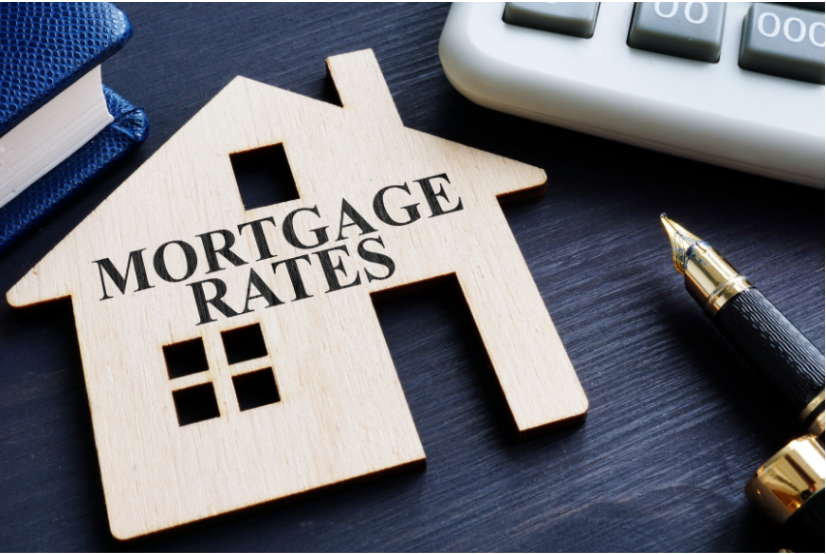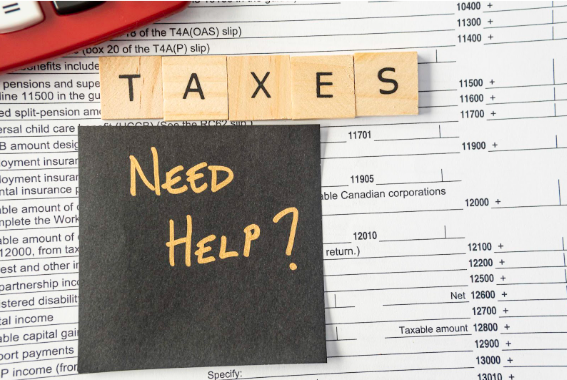
Deciding on a Fixed or Variable Mortgage – Which Is Right for You?
Buying a home is a big decision! Whether you are looking for your first home or have gone through the process before, it can be a stressful journey. You need to decide on the best neighborhood, the type of home your family will need – a house, townhome or condo – and of course, what type of home you can get in your budget.
Mortgage rates and your finances
Buying a home comes with many financial decisions. The type of mortgage rate you choose today can affect your finances for years to come.
If you plan to take on a mortgage for your new or existing home, it is crucial to consider the best decision for your finances before signing the mortgage contract. If you’re looking for personalized advice about your debt, our team of debt experts at EmpireOne Credit offers judgement-free advice. Call us today at 416-900-2324.
For many, a significant part of the financial decision comes down to the mortgage, more specifically, what type of mortgage rate you should get.
A mortgage is a long-term commitment. Once you sign on to the mortgage loan, you are locked in for 3-5 years, and a lot can happen in that time. The type of mortgage rate you choose today can impact your finances for years to come.
Whether you choose a fixed or variable rate mortgage will determine how much you will pay in interest costs and how quickly you can pay down your mortgage loan.
Understanding the difference between mortgage rates and how they can impact your budget can help you make the best decision for your finances.
What is a Fixed-rate Mortgage?

A fixed-rate mortgage is a mortgage where your interest rate stays the same for the entire term of your mortgage. You sign on to this rate at the beginning, and this interest rate is locked in for the duration of the mortgage.
For example, if you sign on to a 5-year fixed-rate, you will know your interest rate and monthly payment throughout your mortgage. You will also know how much of each payment is going towards interest versus paying down your loan principal.
What is a Variable Rate Mortgage?
The interest rate for variable-rate mortgages changes over time. For a variable rate mortgage, the lender will quote you an interest rate as a discount (or premium) against the prime rate. Your mortgage rate will fluctuate as the prime rate changes.
Different lenders offer various variable-rate mortgage products. With most variable-rate mortgages, you have a fixed payment decided at the start of the loan. But the amount of the payment that goes towards interest and principal will change depending on the interest rate. There are other variable-rate mortgages, where the payment might even change as interest rates change.
Should you choose a fixed-rate mortgage?
There are many reasons to consider a fixed-rate mortgage. We’ll go over some of the advantages and disadvantages of a fixed rate to help you understand the best decision for your finances.
Greater certainty
One advantage of a fixed-rate mortgage for homeowners is the certainty that comes with a locked-in rate. When you sign on to a fixed-rate mortgage, you can be sure about your monthly payment, the interest rate, and how much of each payment will go towards interest versus paying down your principal.
If you have a tight budget, smaller savings, or are someone who stresses about their finances, a fixed-rate mortgage might offer you some peace of mind.
Protection against increases in rates
Mortgage rates can be complex. They may fluctuate depending on how the overall economy is doing. Fixed-rate mortgages offer insurance against increasing interest rates.
When you sign on to a fixed-rate mortgage, you do not have to worry about interest rate increases during your mortgage term. If rates go up, you do not have to worry about an increased mortgage rate.
Potentially lose out on interest rate savings.
While a fixed-rate mortgage protects you against increases in interest rates, you lose any opportunity to take advantage of lower interest rates. Suppose interest rates decrease during your mortgage term, you still have to pay the interest based on the initial loan you signed. When interest rates decrease, you cannot take advantage of them, even if they are in your favour.
Higher prepayment penalty
Mortgage lenders typically charge a penalty for breaking your mortgage early. For example, if you sell your home before the end of your mortgage term, your loan becomes due, and the lender will charge you an additional penalty for getting out of the mortgage early.
The penalty fee involves a complex calculation. But in most cases, the prepayment penalty is usually higher for fixed-rate mortgages than for variable-rate mortgages. However, you plan to stay in your home long term, beyond the length of your mortgage, this may not be a factor in your decision.
Should you choose a variable-rate mortgage?

Some homeowners prefer variable-rate mortgages because they like the flexibility they can provide. Here are some of the advantages and disadvantages of variable-rate mortgages.
Take advantage of lower interest rates.
Interest rates have been relatively low historically. With a variable rate mortgage, you can pay down more of your principal while rates remain low.
Pay down your mortgage quickly.
Generally, the rate of a variable mortgage is lower than the fixed-rate at the start of the mortgage. This means that you will be paying less in interest at the start of the loan under a variable rate mortgage. While a variable-rate mortgage can add stress and uncertainty to your finances, it can allow you to pay more towards your principal, especially when interest rates stay the same or decrease.
Lower prepayment penalty
Penalties for breaking variable-rate mortgages are usually lower than the fees for variable-rate mortgages. If you plan to sell your home before the end of the mortgage term, a variable rate mortgage can help you save a little money.
Exposed to higher interest rates
While variable-rate mortgages might be the best option if rates stay low, they can quickly result in higher interest costs when rates go up. If interest rates increase, you might be stuck paying more interest, which will slow down when you can pay off your mortgage.
Fixed-rate vs. Variable-rate, What’s the right mortgage for you?
Fixed and variable rate mortgages each have their pros and cons. It is important to consider their advantages and disadvantages in the context of your finances.
No one has a crystal ball that predicts which way interest rates will go.
Your budget and ability to take risk
Your mortgage is likely a big part of your household budget. If you have a tighter budget, it can be helpful to know what to expect in terms of mortgage payments for the next three or five years as you plan your household budget.
However, if you have ample savings and can afford to take a risk, you might prefer a variable-rate mortgage so that you can pay down your mortgage faster.
Whether you crave certainty in your finances
A fixed-rate mortgage can provide you with certainty in how much you are spending on interest costs versus paying down your principal.
If you tend to be anxious about your money, a variable-rate mortgage might add a lot of stress to your finances. In that case, a fixed-rate mortgage can be your best option so that you can get some peace of mind.
Your plans for the home
Generally, the prepayment penalty for breaking a variable rate mortgage before it is due is lower than the penalty for a fixed-rate mortgage. If you plan to move soon, before the end of your mortgage term, then a variable rate mortgage can help you save a little money.
Market Expectations
Mortgage rates can be complex. They may fluctuate depending on how the overall economy is doing. A fixed-rate mortgage provides insurance against future interest rate hikes if rates go up. But if you expect interest rates to decrease, a variable rate mortgage allows you to take advantage of lower interest rates in the future.
While rates have been low recently, the Bank of Canada has started to increase rates to combat inflation. What remains to be seen is if rates will continue to increase, decrease or stay stable.
Final Thoughts
If you’re looking for advice about your financial situation, our team of debt experts at EmpireOne Credit offers judgement-free advice. Book a free consultation to get started on exploring debt solutions.





